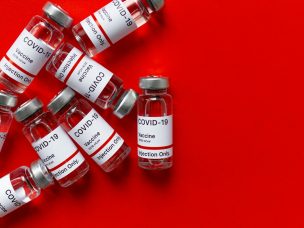TUESDAY, Oct. 27, 2020 (HealthDay News) — Hospitalized patients with COVID-19 more often have a vitamin D deficiency than population-based controls, and in COVID-19 patients, 25-hydroxyvitamin D (25OHD) is inversely associated with some inflammatory parameters, according to a study published online Oct. 27 in the Journal of Clinical Endocrinology & Metabolism.
José L. Hernández, Ph.D., from the University of Cantabria in Santander, Spain, and colleagues conducted a retrospective case-control study of 216 COVID-19 patients and 197 population-based controls to assess 25OHD levels and examine the influence of vitamin D status on disease severity.
The researchers found mean 25OHD levels of 13.8 ± 7.2 ng/mL in COVID-19 patients compared with 20.9 ± 7.4 ng/mL in controls. Compared with women, men had lower 25OHD levels. Vitamin D deficiency was identified in 82.2 and 47.2 percent of COVID-19 cases and controls, respectively. There was an inverse correlation noted for 25OHD with serum ferritin and D-dimer levels. Compared with those with serum 25OHD levels ≥20 ng/mL, COVID-19 patients with vitamin D deficiency had a greater prevalence of hypertension and cardiovascular diseases, increased serum ferritin and troponin levels, and longer length of hospital stay. There was no causal relationship observed between vitamin D deficiency and COVID-19 severity.
“Vitamin D treatment should be recommended in COVID-19 patients with low levels of vitamin D circulating in the blood since this approach might have beneficial effects in both the musculoskeletal and the immune system,” Hernández said in a statement.
Two authors disclosed financial ties to the pharmaceutical industry.
Abstract/Full Text (subscription or payment may be required)










